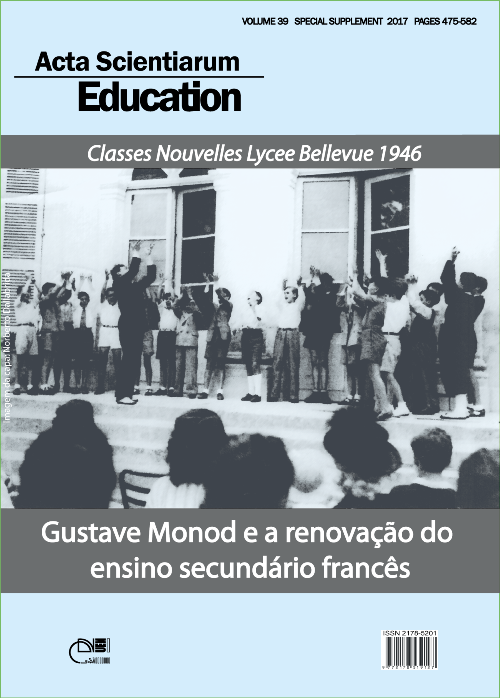<b>Education and liberty: the <i>habitus</i> formation as a fundamental critical element to the theory of emancipation
Abstract
The study evaluates the cumulative path traveled by the subject originally submitted to the state of nature (hominization) to the condition of ‘human being’ made of instrumental complexity and cognitive (humanization) elements. Education becomes the constitution axis from hominization to humanization, through the assumptions of incorporation of habitus of human nature. Through Historical Materialist Theory, we described habitus as the exercise of practices repeated and incorporated into the formation of the subject, thus becoming a ‘second nature’. The Theory of Emancipation described in Kant and Horkheimer and Adorno, we check the status of liberty of the subjects by the incorporation of a practice primarily belonging to the world of reason (ethics and aesthetics) or by negative educational action.
Downloads

This work is licensed under a Creative Commons Attribution 4.0 International License.
DECLARATION OF ORIGINALITY AND COPYRIGHTS
I declare that this article is original and has not been submitted for publication in any other national or international journal, either in part or in its entirety.
The copyright belongs exclusively to the authors. The licensing rights used by the journal are the Creative Commons Attribution 4.0 (CC BY 4.0) license: sharing (copying and distributing the material in any medium or format) and adaptation (remixing, transforming, and building upon the material thus licensed for any purpose, including commercial purposes) are permitted.
It is recommended that you read this link for more information on the subject: providing credits and references correctly, among other crucial details for the proper use of the licensed material.














































